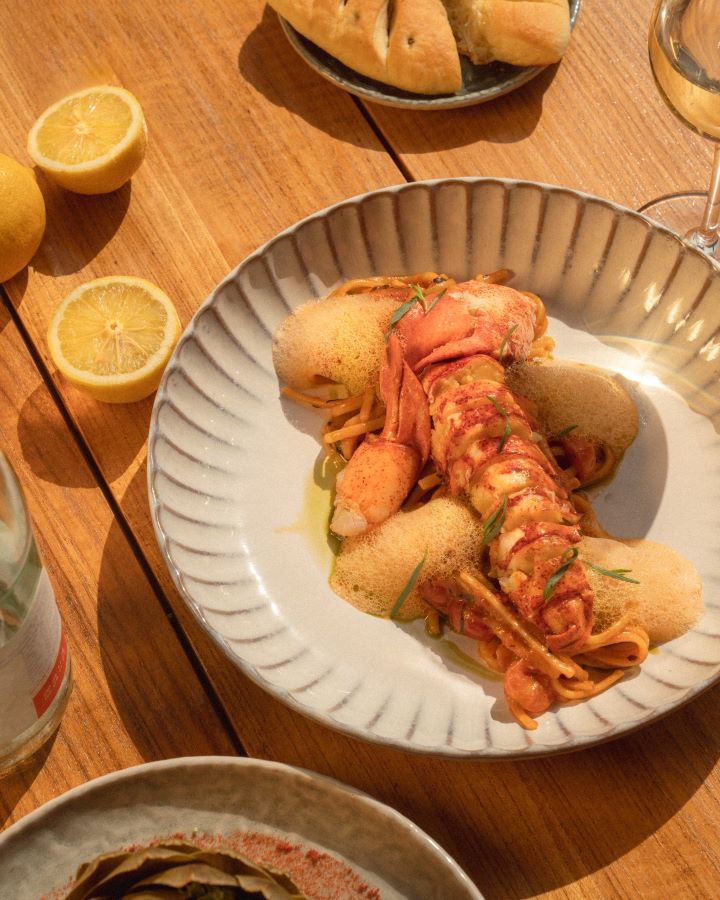LONDON: Barclays and four former top executives were charged with fraud on Tuesday over undisclosed payments to Qatari investors as part of a £12 billion ($15 billion) emergency fundraising during the financial crisis in 2008.
Britain’s Serious Fraud Office (SFO) charged Barclays Plc, former Chief Executive John Varley, Roger Jenkins, Tom Kalaris and Richard Boath with conspiracy to commit fraud and unlawful financial assistance in its first criminal prosecution of a bank and senior managers over events during the credit crisis.
Barclays said it was considering its position and awaiting further information about the charges, which follow a five-year inquiry into how it avoided the fate of Lloyds and Royal Bank of Scotland (RBS) by averting a state bailout.
The SFO charged Varley, Jenkins, the ex-chairman of its Middle East investment banking arm, Kalaris, a former CEO of the bank’s wealth division and Boath, a former European head of financial institutions, after investigating a two-part fundraising that included a $3 billion loan to Qatar.
A lawyer for Jenkins said he would “vigorously defend” himself, adding his client had received both internal and external legal advice at the time.
Boath said he had no case to answer as he had repeatedly raised concerns about decisions taken by the bank at the time with both senior management and senior lawyers and had been reassured the decisions were lawful.
“The SFO’s decision to charge me is based on a false understanding of my role and the facts. I was not a decision-maker and had no control over what the bank did in 2008,” he said in a statement.
“The evidence I have supplied is very clear: There is no case for me to answer.”
A lawyer representing Varley, who resigned as a Rio Tinto senior independent director with immediate effect following the SFO charges, declined to comment. A lawyer for Kalaris could not immediately be reached for comment.
Each offense of fraud by false representation carries a maximum jail sentence of 10 years. Barclays faces a fine.
The men have been told to appear before Westminster Magistrates’ Court on July 3.
The case centers on agreements between Barclays and Qatari investors during two fundraisings in June and October 2008.
Qatar Holding, part of the Qatar Investment Authority (QIA) sovereign wealth fund, and Challenger, an investment vehicle of former Qatari Prime Minister Sheikh Hamad bin Jassim bin Jabr Al-Thani, invested around £5.3 billion in Barclays.
Authorities have examined whether payments from Barclays to Qatar at the same time, such as around £322 million in “advisory services agreements” (ASA), alongside the $3 billion loan, were honest and properly disclosed.
Varley and Jenkins have been charged with conspiracy to commit fraud by false representation during the June 2008 capital raising as well as the November 2008 fundraising. They also face a charge of unlawful financial assistance.
Kalaris and Boath have been charged with conspiracy to commit fraud by false representation during the June capital raising, the SFO said.
Qatar, which is a major UK investor, has not been accused of wrongdoing.
The criminal charge is a reputational blow to Barclays, which is grappling with a string of other legal problems.
In a separate case, it is contesting a $1 billion civil lawsuit from businesswoman Amanda Staveley, who arranged an investment in Barclays from Abu Dhabi investors during the financial crisis.
In 2013 the Financial Conduct Authority (FCA) proposed a £50 million fine over how Barclays made disclosures about its dealings with Qatar in an investigation that has been on hold pending the outcome of the SFO’s probe.
“We are pleased that this matter, which led to the stay of our own case, is now in the public domain. We welcome a fair and transparent hearing on the basis of the charges set out today by the SFO,” it said in a statement.
Away from Qatar, Barclays current CEO Jes Staley, who joined the bank in late 2015, is under investigation for attempting to unmask an internal whistleblower.
Qatar, meanwhile, has made a healthy profit from its investment and remains Barclays’ biggest shareholder, with a stake of around 6 percent, according to Thomson Reuters data.
Britain charges Barclays, ex-bosses over ‘unlawful’ Qatari deal
Britain charges Barclays, ex-bosses over ‘unlawful’ Qatari deal

Manchester United stretch loyalty of ‘numbed’ Chinese fans to the limit

- Manchester United once claimed to have more than 100 million followers in China
- But like supporters of the club everywhere their loyalty is being put severely to the test
HONG KONG: Yan Gang speaks for many Manchester United fans when he says: “We’ve been numbed by performances over the past few seasons.”
Manchester United once claimed to have more than 100 million followers in China, Yan among them, but like supporters of the club everywhere their loyalty is being put severely to the test.
As an illustration of United’s fall from grace in China and beyond, tickets for Friday’s friendly at the 40,000-capacity Hong Kong Stadium against the city’s representative team were still available on Thursday afternoon.
Tickets also appeared on resale websites with their prices slashed 50 percent.
United were beaten 1-0 in Malaysia by a Southeast Asian XI on Wednesday and booed off, a fresh low in a dismal season for Ruben Amorim’s bedraggled men.
“Every season ends with the same old story with no sign of recovery,” said Yan, a supporter for 23 years and organizer of a United fans’ association in Shenzhen, just across the border from Hong Kong in mainland China.
Amorim’s side left for Asia on Sunday, hours after concluding their worst season since 1974, to play friendlies in Kuala Lumpur and Hong Kong.
The Old Trafford club made no attempt to hide the motivation for flying across the world straight after a draining and demoralizing campaign that saw them come 15th in the Premier League and fail to lift a trophy.
“Tour fixtures drive significant additional revenue which help make the club stronger, allowing us to keep investing in success on the pitch,” chief executive Omar Berrada said.
This week’s Asia visit will generate about $10 million (£7.8m) for United, the BBC reported.
China has the world’s second-biggest economy and second-biggest population, making it a vital market.
United’s finances are under scrutiny with co-owner Jim Ratcliffe implementing steep cuts since buying a minority stake just over a year ago.
The club recently announced a further 200 redundancies were planned after 250 jobs were cut last year.
Ratcliffe claimed in March that the Red Devils would have “run out of money at Christmas” otherwise.
From Kuala Lumpur, where it was 32 Celsius (90 Fahrenheit) at kickoff on Wednesday, it is a four-hour flight to a similarly sticky Hong Kong.
July friendlies in the city between Tottenham and Arsenal, and Liverpool and AC Milan, sold out within hours of going on general sale.
No such luck for United for their exhibition match with the Hong Kong team, and with a day until kickoff they face the ignominy of playing in front of empty seats.
The 39-year-old fan Yan said that the United supporters club in Shenzhen has about 2,000 members.
That number has hardly grown in the past few years, he said.
Older fans make up the vast majority of members.
“I can’t think of any words we can use to attract new fans because the team has a bad record and no standout stars to recruit younger fans,” said Yan.
He Zhiyi, a United fan for more than a decade, is flying to Hong Kong from the southwestern Chinese city of Chengdu.
She had hoped to see the squad parade the Europa League trophy, but Amorim’s side lost 1-0 to Tottenham in the final.
With it went United’s hopes of sneaking into the Champions League, which would have brought badly needed revenue, prestige and pulling power.
“The team is all over the place – players, coaches and management are not moving in one direction,” said the 32-year-old He, a football content creator and author.
“It feels like the team is killing the enthusiasm of the fans, as if the romance can’t be sustained anymore.”
Zhang Chongqian, also from Chengdu, said United’s “spirit and traditions” have been lost.
“In recent years, our fans (in China) gradually stopped watching Manchester United or even football,” the 38-year-old lifelong supporter said.
Zhang will not join those fans abandoning his side, even after the poorest season in the club’s recent history.
“Manchester United have been experiencing a period of sinking,” he said.
“But there are still so many fans who will never give up on them.”
Recipes for success: Chef Jonathan Bouthiaux of Banyan Tree Dubai offers advice and a tasty lobster recipe

DUBAI: From Michelin-starred kitchens in France to luxury resorts across the globe, Chef Jonathan Bouthiaux has built a career defined by precision, creativity and a passion for sharing culinary stories.
His journey began in Saint-Malo, Brittany, and took an unexpected turn through charity work in Africa, where cooking became more than a skill — it became a calling. Now, as the executive chef at Banyan Tree Dubai, Bouthiaux oversees the kitchens and menus across the resort.
Here, the chef talks about learning to keep dishes simple, trusting good ingredients, and how he leads his team to create memorable dining experiences.

When you started out, what was the most common mistake you made?
Like many young chefs, I used to overcomplicate things, too many elements on a plate, trying to impress instead of letting the ingredients speak. Over time, I learned that clarity, restraint and seasonality make a stronger impact than complexity for complexity’s sake.
What’s your top tip for amateur chefs?
Master the basics. Learn how to season correctly and respect your ingredients. Do not stress. Cooking should bring joy. If you forget an ingredient, improvise. Some of the best dishes are born from happy accidents.
What ingredient can instantly improve any dish?
Acidity, like a touch of fresh lemon juice or a splash of good vinegar, can instantly elevate a dish by bringing balance, brightness and depth. It sharpens flavors and adds complexity. Another game-changer? Infused herb oils; a simple drizzle of basil or rosemary oil can completely transform a dressing or a finished plate, adding aromatic intensity and a refined, layered finish.
When you go out to eat, do you find yourself critiquing the food?
I naturally notice the details — it comes with the territory — but I always try to appreciate the overall experience.
What’s the most common issue that you find in other restaurants?
It’s not always to do with technique. Often, it’s about intent. You can sense when a dish has been prepared out of habit rather than with care. In a city like Dubai, ingredient quality and value also stand out. Today’s guests are discerning. They expect transparency and authenticity. Honest flavors and thoughtful sourcing always make a difference.
When you go out to eat, what’s your favorite cuisine?
I enjoy discovering all types of cuisine, especially when it’s something new or unexpected. That said, I am particularly drawn to Japanese and Italian food. Both are rooted in simplicity, precision and a deep respect for ingredients — values that strongly resonate with me. I also have a solid background in these cuisines, so I find myself naturally appreciating the balance, technique and cultural expression they bring to the table.
What’s your go-to dish if you have to cook something quickly at home?
A miso-glazed salmon with a side of steamed greens and sesame brown rice. It’s light, nutrient-rich and packed with umami. Plus, it comes together fast without sacrificing flavor or elegance. I always look for that sweet spot between health, simplicity, and satisfaction — something that feels good to eat and is good for you.
What customer request most frustrates you?
I’m open to adjustments where possible, but I find that excessive alterations to a dish can sometimes disrupt the flow of the dining experience. Dining should be about trusting the chef’s vision and embracing the flavors as they’re crafted. That said, our priority is always ensuring our guests feel satisfied and valued.
What’s your favorite dish to cook and why?
One of my favorites is Homard à l'Armoricaine (Lobster Armoricaine). This classic French recipe is special to me, as I’m originally from Saint-Malo, Brittany, where I first learned it at the Michelin-starred restaurant La Duchesse Anne. The dish is a true test of technique, requiring multiple steps — from preparing the lobster to creating a rich, flavorful sauce. It is a celebration of fresh lobster and bold flavors, and I enjoy the process as much as the final result. This dish always brings me back to my roots in Brittany and reminds me why I’m so passionate about cuisine.
What’s the most difficult dish for you to get right?
One dish that requires a high level of technique and precision is the pithiviers—a beautifully intricate puff pastry pie, often filled with game or foie gras, and fresh black truffle. It showcases the kind of refined execution I truly enjoy. The balance of flavors, the evenness of the puff pastry, and the perfect seal all need to come together seamlessly. It’s not just a dish, it’s a statement of culinary skill and elegance.
As a head chef, what are you like? Are you a disciplinarian? Or are you more laidback?
I oversee multiple restaurants, so it’s about building a culture. I believe in structure, consistency and leading by example. Discipline is essential, but not through fear — through clarity, respect and accountability. I focus on empowering my team, mentoring young chefs, and fostering an environment where excellence is the standard, not the exception. Consistency is key — without it, even the most creative ideas lose their value. At the end of the day, we are here to deliver memorable experiences, and that begins with a motivated, aligned team.
RECIPE: Chef Jonathan’s lobster linguini

For the Lobster Bisque:
Ingredients:
1 kg lobster shells (from raw or cooked lobster)
80 g white onion (1 small), chopped
40 g carrot (½ medium), chopped
60 g celery (1 large stalk), chopped
15 g garlic (3 cloves), crushed
50 g tomato paste (3 tbsp)
2.8 L water
2 tbsp olive oil
Salt and pepper to taste
For the pasta:
500 g linguine pasta
2 whole lobster (about 500–600 g)
2 tbsp olive oil
1 clove garlic, minced
320 g tomato sauce
160 ml lobster bisque (from above)
40 g confit or roasted cherry tomatoes
8 g fresh tarragon, chopped (plus a few leaves for garnish)
Step-by-step instructions
Make the lobster bisque (can be made ahead)
Preheat the oven to 200°C (390°F).
Place lobster shells on a baking tray and roast for 20 minutes.
In a large pot, heat olive oil, then sauté the onion, carrot, celery, and garlic for 6–8 minutes.
Add the roasted shells and tomato paste. Stir and cook for 5 minutes.
Add 2.8 L water, bring to a boil, then lower heat, cover, and simmer for 1 hour 30 minutes.
Blend the mixture using a hand blender or standard blender.
Strain through a fine sieve. Season with salt and pepper. Set aside.
Cook the lobster:
Bring a large pot of salted water to a boil. Add the lobster and poach for 5–6 minutes.
Remove, cool slightly, then crack and remove the meat. Slice into bite-sized pieces.
Heat a small pan with a knob of butter and quickly flash the lobster meat to finish.
Cook the pasta:
Boil linguine in salted water until just al dente (around 8–9 minutes).
Drain and set aside, reserving a bit of pasta water.
Assemble the dish:
In a large pan, heat 2 tbsp olive oil and sauté minced garlic until fragrant.
Add the tomato sauce and lobster bisque. Simmer for 2–3 minutes.
Add cooked pasta and toss well to coat. If needed, add a splash of pasta water.
Add chopped tarragon, cherry tomatoes, and the lobster meat. Mix gently for 1–2 minutes.
Adjust seasoning with salt and pepper.
To serve:
Plate the pasta in a warm bowl or shallow plate.
Top with lobster pieces, cherry tomatoes, and a spoon of sauce.
Garnish with fresh tarragon leaves, lobster foam (optional), and a drizzle of basil oil (optional).
International UN Peacekeepers Day: Pakistan remembers 181 of its own lost in line of duty

- Over 235,000 Pakistani peacekeepers have served in 48 UN missions worldwide in seven-decade history of UN peacekeeping
- May 29 marks creation of UN Truce Supervision Organization in 1948 to monitor ceasefire after 1948 Arab-Israeli War
ISLAMABAD: Pakistan joined the international community in celebrating the International Day of United Nations Peacekeepers today, Thursday, the prime minister’s office said in a message, paying tribute to 181 Pakistanis who had been killed in the line of duty.
The International Day of United Nations Peacekeepers, May 29, is “an international day to pay tribute to all the men and women who have served and continue to serve in United Nations peacekeeping operations for their high level of professionalism, dedication, and courage and to honor the memory of those who have lost their lives in the cause of peace.”
“In the seven-decade history of UN peacekeeping missions, more than 235,000 Pakistani peacekeepers have rendered distinguished service in 48 UN missions around the world,” PM Shehbaz Sharif said in a message.
“181 Pakistani peacekeepers have made the eternal sacrifice of their lives in achieving international peace and security.”
Sharif said the international day was an opportune occasion to review the many challenges facing UN peacekeeping, such as increasingly unilateral policies, financial sanctions, growing threats to the safety and security of UN peacekeepers, targeting of UN peacekeeping operations based on disinformation, and the destabilizing effects of new and emerging technologies.
In an effort to address these challenges, Pakistan, along with the Republic of Korea, co-hosted the UN Peacekeeping Ministerial Meeting in Islamabad last month with the theme, “Towards a Safer and More Effective Peace: Using Technology and an Integrated Approach”.
Pakistan also hosts the United Nations Military Observer Group in India and Pakistan (UNMOGIP), one of the oldest UN peacekeeping missions, tasked with monitoring the ceasefire along the Line of Control in the UN-recognized disputed territory of Jammu and Kashmir.
The date, May 29, for the International Day of United Nations Peacekeepers, marks the anniversary of the creation of the United Nations Truce Supervision Organization in 1948 to monitor the ceasefire after the 1948 Arab-Israeli War, which was the first ever UN peacekeeping mission.
Thai, Cambodian army chiefs to meet over border clash

- A Cambodian soldier was killed on Wednesday during an exchange of gunfire with the Thai army at the border
- Cambodia and Thailand have long been at odds over their more than 800-kilometer-long border
BANGKOK: The military chiefs of Thailand and Cambodia will meet Thursday, both governments said, after a Cambodian soldier was killed in a border clash.
Thailand’s Prime Minister Paetongtarn Shinawatra told reporters on Thursday that “both sides should remain calm and discuss to see what we can agree,” and called for peaceful discussion.
Her Cambodian counterpart Hun Manet wrote on Facebook that he hoped the meeting between the two army commanders “will yield positive results.”
Thai Defense Minister Phumtham Wechayachai told journalists the talks will be held on Thursday afternoon, adding that there had been a “misunderstanding by both sides.”
A Cambodian soldier was killed on Wednesday during an exchange of gunfire with the Thai army at the border, a Cambodian army spokesman said.
His death – a rare fatality along the long-sensitive frontier – came after Cambodian and Thai leaders attended a Southeast Asian summit where the regional ASEAN grouping vowed greater cooperation.
Thailand’s military said Wednesday that its soldiers fired in response to gunshots from Cambodia’s border force, leading to an exchange lasting around 10 minutes before the Thai side said the Cambodians requested a ceasefire.
Cambodian Royal Army spokesman Mao Phalla confirmed the clash on Wednesday, but said Thai soldiers had attacked Cambodian troops who were on border patrol duty in northern Preah Vihear province.
“Our soldier died in the trenches. The Thais came to attack us,” Mao Phalla said.
Cambodia and Thailand have long been at odds over their more than 800-kilometer-long (500-mile) border, which was largely drawn during the French occupation of Indochina.
Bloody military clashes between the Southeast Asian neighbors erupted in 2008 over the Preah Vihear temple near their shared border.
The row over a patch of land next to the 900-year-old temple led to several years of sporadic violence, resulting in at least 28 deaths before the International Court of Justice ruled the disputed area belonged to Cambodia.
In February, Bangkok formally protested to Phnom Penh after a video of women singing a patriotic Khmer song in front of another disputed temple was posted on social media.
On Thursday, influential former Cambodian prime minister Hun Sen – Hun Manet’s father, and an ally of Paetongtarn’s father, ex-Thai premier Thaksin Shinawatra – urged calm and a peaceful resolution to the ongoing border issues between the two countries.
Paetongtarn traveled to Cambodia in April for a two-day visit, during which she met Hun Manet to discuss cross-border cooperation on issues such as online scams and air pollution.
Saudi Arabia’s first dedicated art storage depot launched in Jeddah

JEDDAH: Jeddah’s ATHR Gallery, in partnership with global arts logistics company Hasenkamp, launched The Art Storage by ATHR on May 24.
The Art Storage — billed as Saudi Arabia’s first purpose-built, museum-grade art storage depot — integrates top-class security with exacting environmental control. The storage area is fully insulated and climate-regulated, maintaining a stable temperature of 20-22°C with precisely managed humidity levels. The entire system is also engineered to ensure maximum dust control, climate consistency, and discretion. Towering ceilings accommodate monumental works, while wide, retractable gates allow seamless movement of oversized pieces. To eliminate the risk of damage, all areas are fully insulated against rain and extreme weather conditions, ensuring the protection of artworks to international museum standards.
Rana Alamuddin, director of marketing and communications at ATHR, told Arab News: “ATHR was born out of a desire to fill a gap in the Saudi art scene by providing aspiring and emerging artists with a platform to thrive locally and globally. This new facility is a continuation of that mission, reinforcing Jeddah as the heart of the gallery’s vision.”
She added that the new facility will help reduce a long-standing gap in Saudi’s cultural ecosystem. “This level of preservation means artworks are protected not just for today, but for generations to come,” she said.
Thomas Schneider, CEO of Hasenkamp, told Arab News at the opening: “I feel privileged to be part of the development of the cultural scene in Saudi Arabia. I came here for the first time over 11 years ago and the development is just mind-blowing in every aspect in the architectural and cultural scene. This is a booming country and it’s full of so many wonderful creative people.”
Mohammed Hafiz, CEO of ATHR & co-founder of The Art Storage told Arab News that developing a “complete ecosystem” is essential for the Saudi art sector to grow.
“A critical part of that ecosystem is safe, professional storage — because most artworks spend more time off-view than on display,” he said. “Proper storage ensures the preservation of priceless, irreplaceable pieces when they’re not in public view. It’s a meaningful contribution to the infrastructure of Saudi Arabia’s cultural future.”















